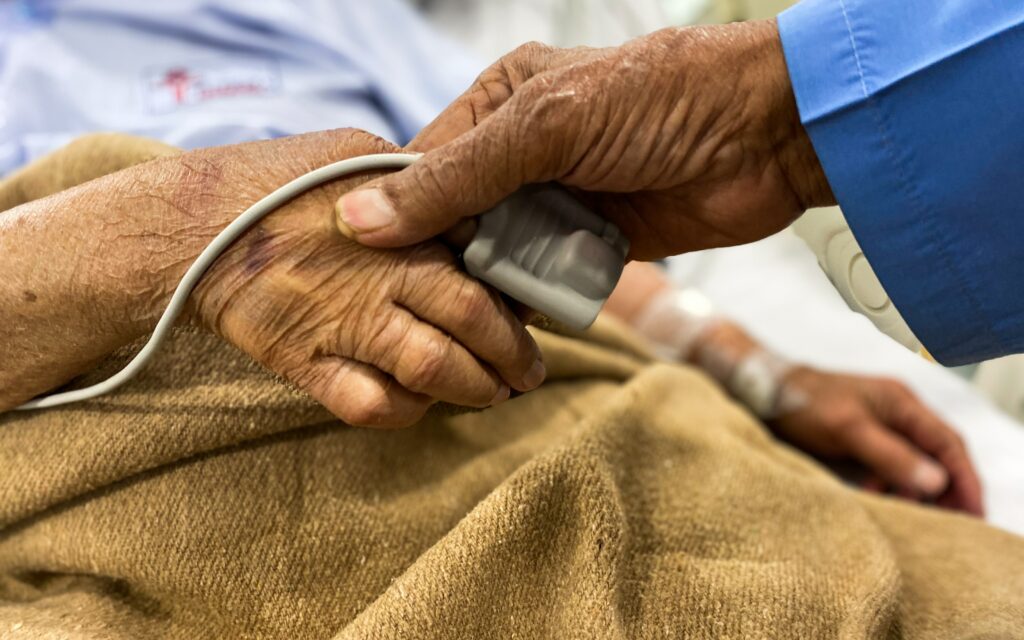 Subscribers Only
People
Subscribers Only
People 
In the lead up to International Women’s Health Day, on May 28, and in light of their recently published research, the leading end of life charity, Marie Curie, is calling on Welsh Government and NHS Wales to start considering palliative and end of life care through a gender lens.
The research explores how gender may be impacting end of life experience within Marie Curie services, with the final recommendations applicable and relevant to palliative and end of life care services Wales-wide. Although no evident gender inequities were found in the delivery of care provided by Marie Curie, the research has highlighted how outdated gender norms appear to influence end of life preferences, experiences, and outcomes, for both someone at the end of their life and their carers.
Place of death
While home remains the preferred place of death for all, the research findings suggest that men are more likely than women to note a preference for dying at home. Existing international evidence shows that women often associate dying at home with being a burden on their loved ones i. Additionally, some studies have shown that those who have previously been carers (of which the majority are women), are less likely to want to die at home due to a greater understanding of caring pressures ii.
The research also indicated, although in small numbers, that slightly more women than men in the community are dying in places other than their stated preference, namely in care/nursing homes and hospitals. Further research is needed to investigate whether this is indeed a gender inequity playing out in Wales, and what packages need to be available to enable women to die at home if this is their preference.
Women feeling like a burden
Many women who have been diagnosed with a terminal illness struggle with the thought of being a burden on family and loved ones; as suggested above, if women seek to prioritise others’ needs ahead of theirs, it can impact their end of life care preferences and outcomes.
Speaking to one woman at end of life, Sam from Caerleon, who has lung, lymph, plura and spinal cancer, openly shares the challenge of balancing her terminal diagnosis and family life:
“I can feel like a burden, but at the same time I get annoyed at that, because sometimes, for example, if Simon’s been in work all day, I’ll still be cooking in the kitchen at the end of the day – and I’m not going to eat, because I feel really sick. So, I question why am I doing this, and then I think, “well, it’s a fair distribution of work really”, but is it? Or am I doing it because it’s a stereotype?”
Gender biases impacting caregivers
There was a general consensus among internal and external healthcare professionals that gender norms around women as natural caregivers continue to exist strongly, leading to a disproportionate pressure on women. Meanwhile, it was also agreed that when men are providing care to someone at end of life, they are less likely to seek formal support. Ultimately, we need to eliminate gender norms around who should be a caregiver and who should be seeking help, and ensure more support is available to those in unpaid caring positions.
Recommendations
The Marie Curie report includes a host of recommendations for various stakeholders. This includes an ask to Welsh Government to ensure palliative and end of life care is included in the upcoming Women and Girl’s Health Plan, as well as an effort to promote further research into how gender impacts dying, death and bereavement.
References
i Ullrich, A. et al., 2019. Exploring the gender dimensions of problems and needs of patients receiving specialist palliative care in a German palliative care unit- the perspectives of patients and healthcare professionals. BMC Palliative Care
ii Gott, M., Morgan, T., Williams, L., 2020. Gender and Palliative Care: A Call to Arms. SAGE Publications.
Bethan Edwards is the Senior Policy Manager for Marie Curie Cymru.


